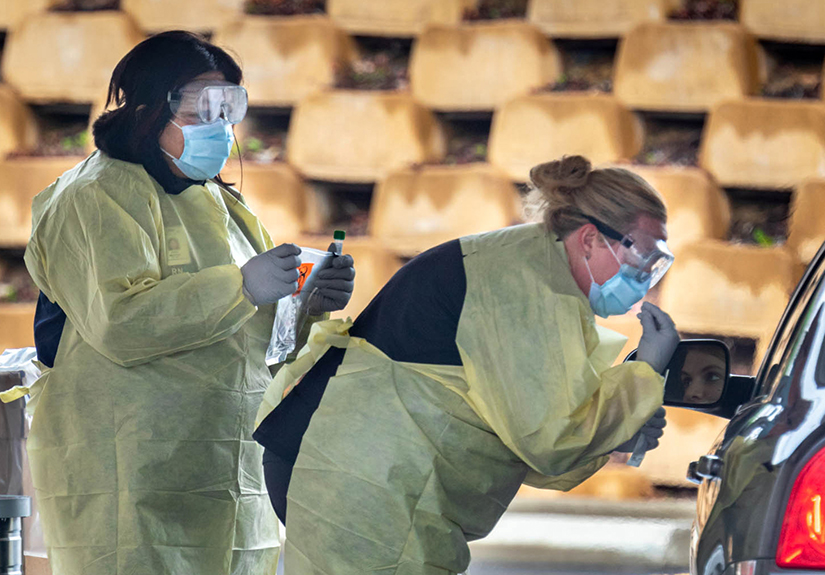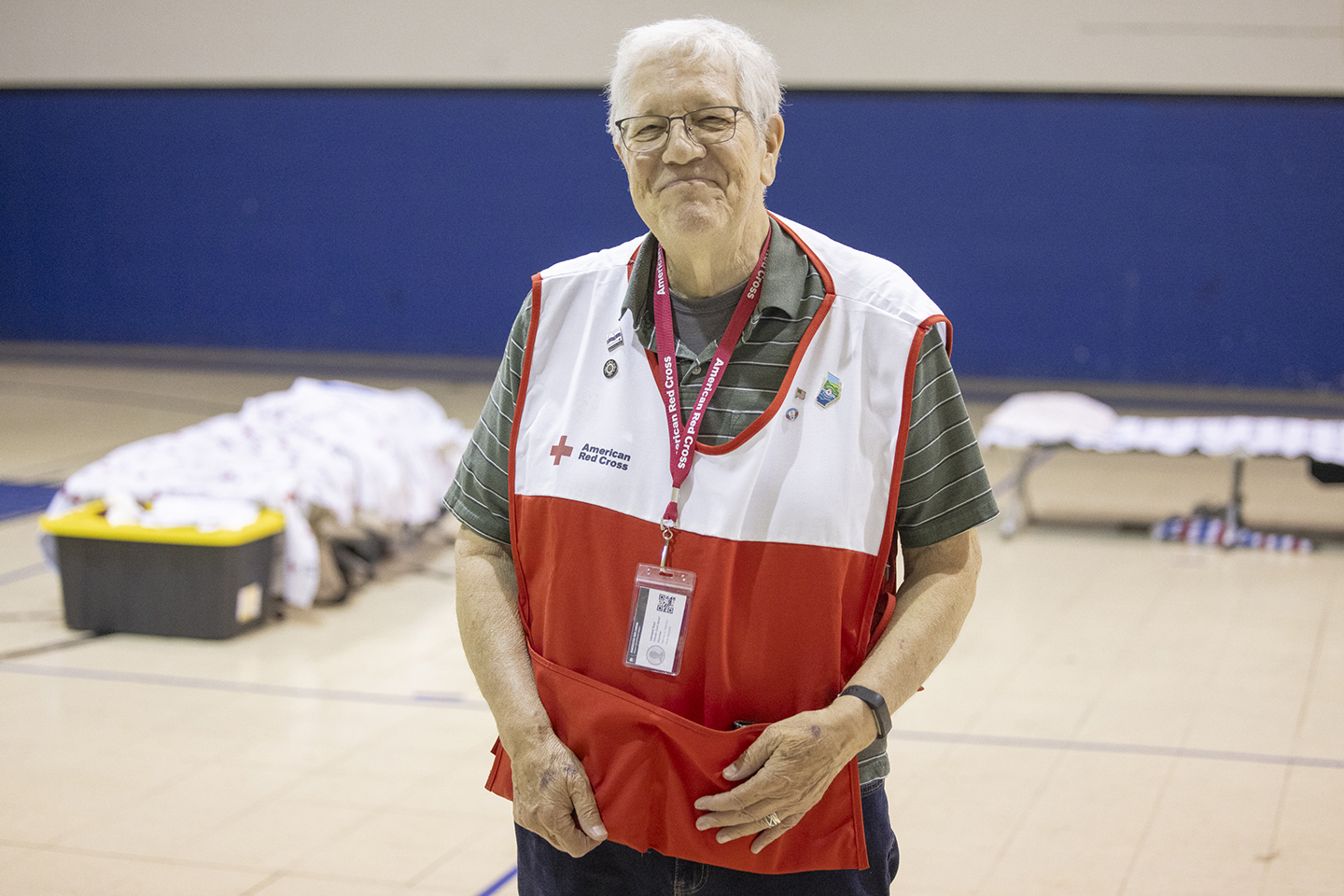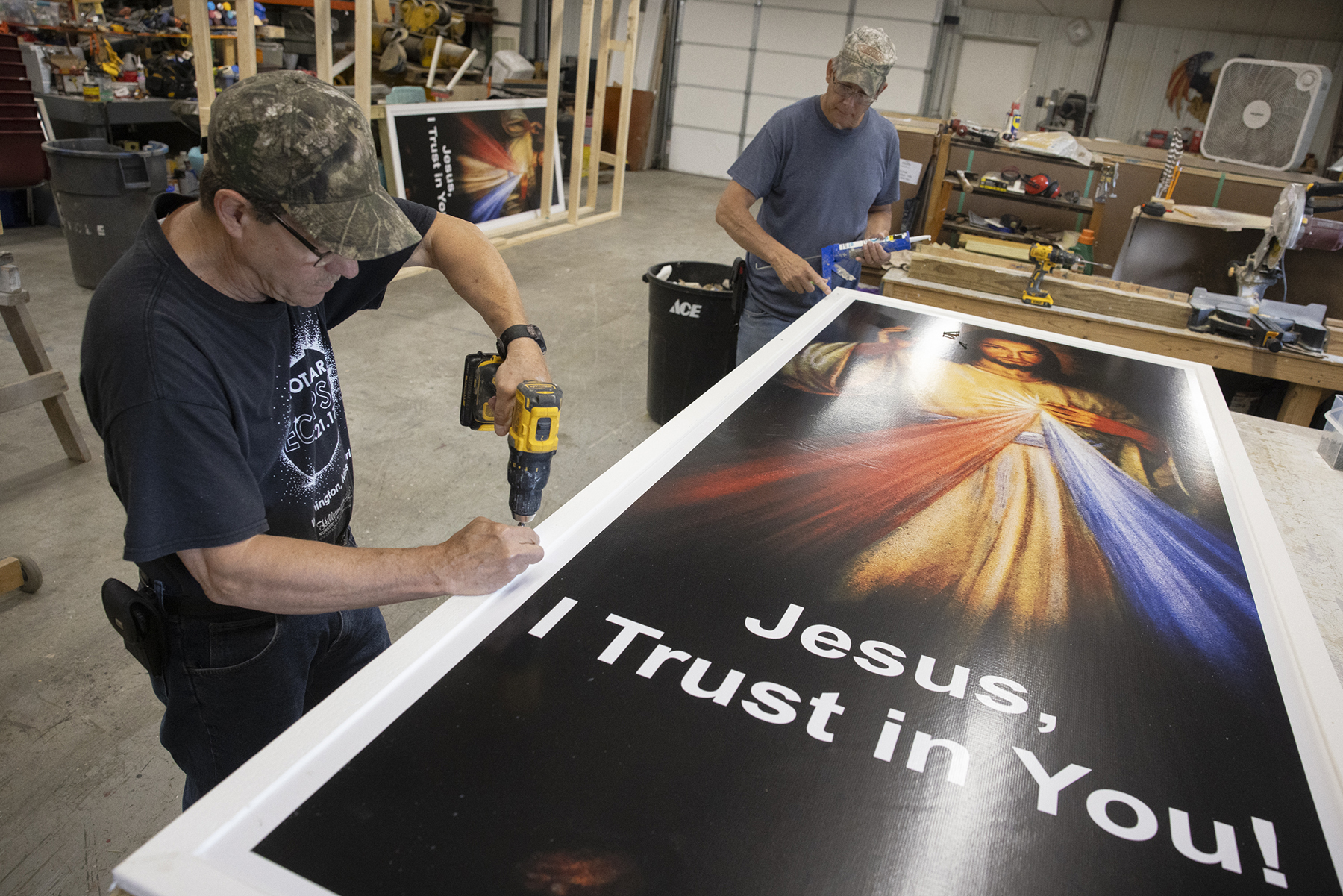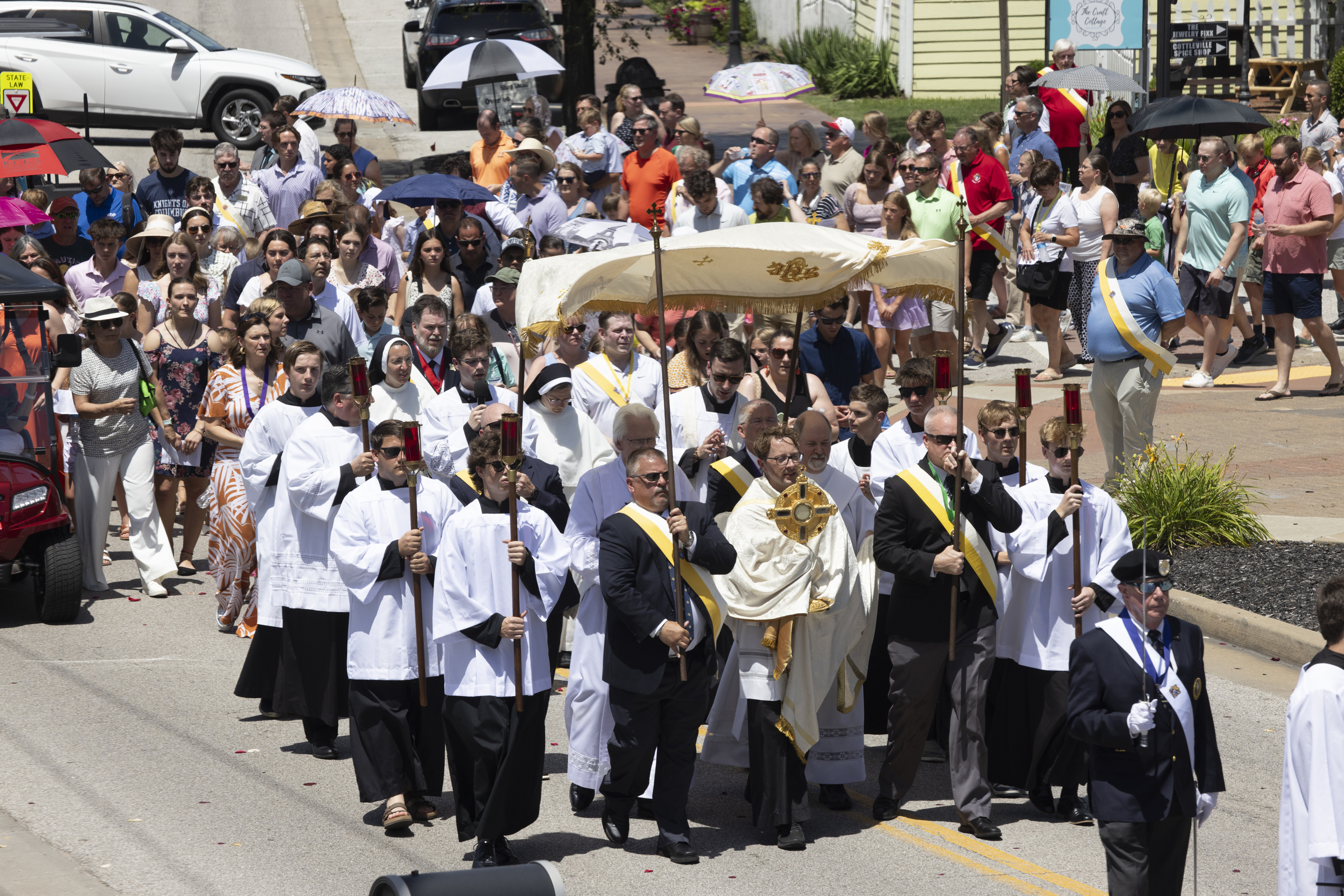Mercy’s test site is a reminder of its heritage

Call to serve, sacred moments are a part of health-care roles
With Missouri’s first case of novel coronavirus (COVID-19) sparking concern in the St. Louis community and with more widely available testing resources, Mercy opened a drive-through COVID-19 test collection site March 14.
Registered nurses Celia McGraw and Tiffany Feldhake were on the front lines recently at the site.
The site is a reminder that Mercy lives its Catholic mission, said McGraw, a parishioner at St. Joseph in Manchester.
For the most part, the people who come through are considerate and nice, though some are understandably anxious, the nurse noted. “They’re conscious not to spread anything to us,” McGraw said.
Feldhake said the work involves calming nerves. The patients relax when she says, “Take some slow, deep breaths. This is going to be fine,” and guides them through the procedure and what to expect.
The Mercy Test Collection Site is exclusively for patients who have a fever of at least 100.4 degrees and respiratory symptoms including cough or shortness of breath.
Brian O’Toole, executive vice president of mission and ethics at Mercy, said regular prayers and reflections sent to employees refer to the faithfulness of God, ask for the strength of God and appeal to the heritage of Mercy and Sister Catherine McAuley.
Sister Catherine, a native of Ireland, staffed a cholera hospital in 1832 in Dublin when the epidemic hit there. The sisters nursed in shifts for the next seven months. And that’s how the sisters got into nursing. “We’re using that image with our co-workers to remind them that the sisters dropped everything and focused during an epidemic time. So we’re continuing to walk in their footsteps,” O’Toole said.
The material sent to employees “is a blend of Scripture, reflections and prayers, trusting in God’s providence, God’s strength, coupled with our Mercy heritage,” O’Toole said.
All of the departments, including environmental services and dietary — people who are cleaning the rooms and bringing the food to patients — have a call to serve, O’Toole said. “This is one way in the most trying times they are called to live it out.”
Mercy has “daily huddles” on the nursing floors, and in other areas, called sacred moments. “We take turns, and in every huddle one of the co-workers will say here’s where I experienced a sacred moment, God’s presence, God’s love,” he said.
Last week, in one huddle O’Toole attended, an aide told of assisting a woman who was thankful and said, “You’re an angel.” The aide said it was a reminder that “we’re the hands and feet of God.”
It’s “the little things that we do that brings God’s love to them,” O’Toole said. “It keeps our health care role and ministry connected.”
St. Louis Review photojournalist Lisa Johnston contributed to this story.
>> Screening
Mercy is only providing screening for those who meet requirements because testing prior to the appearance of symptoms can result in a false negative, said Dr. Keith Starke, Mercy’s chief quality officer. “It’s critical for our communities that we screen those with the highest risk.”
Mercy opened a drive-through location at the Mercy Virtual Care Center, 15740 S. Outer Forty Road in Chesterfield, to provide a designated place for COVID-19 testing for the St. Louis community.
“This drive-through testing site will prevent unnecessary exposure to our patients and caregivers in our hospitals and clinics,” said Donn Sorensen, Mercy’s executive vice president of operations who is leading COVID-19 response across Mercy. “By directing at-risk people to this site, Mercy will limit the traffic to our hospitals and clinics. The safety of our patients, visitors and co-workers is of the utmost importance.”
Patients will first call Mercy’s clinical support line at (314) 251-0500 to be screened, and if appropriate, proceed to the test collection site. Mercy will collect a sample and send it to the designated lab, the state health department or the Centers for Disease Control and Prevention. Results may take several days. There will be a cost associated with the testing; it’s unknown if commercial insurance or government funding will cover any of the cost.
Mercy is working closely with BJC HealthCare and SSM Health, as well as the state and local health departments, as additional sites are opened across St. Louis. Mercy also plans to open additional test collection sites across Mercy’s four states.
>> Stopping the spread
While COVID-19 is spread from person to person, more than 80% of the patients who develop it will only become mildly ill. The concern is for patients with underlying medical conditions and the elderly, who are more likely to need hospital-level supportive care.
People with COVID-19 do not have a runny nose or nasal congestion. Symptoms to be aware of include:
• 100.4 fever or higher – 90% will have fever.
• Dry cough – 70% will have a dry cough.
• Shortness of breath – for those who become more acutely ill.
The most important things you can do to protect yourself from any illness also applies to COVID-19:
• Practice good hand hygiene all the time. Wash hands with soap and water for at least 20 seconds. If water is not available, use a hand sanitizer with at least 60% alcohol content.
• Avoid touching your eyes, nose and mouth.
• Practice the 6-foot rule. If you must be in a public space and notice someone ill, keep at least 6 feet away to lessen your risk.
• Be considerate when you are sick. Stay home if you are feeling ill. You should be fever free for 24 hours before returning to work or school. Cover your cough and sneeze using the crook of your arm (inside elbow).
• Get appropriate rest, eat a healthy diet and exercise regularly.
• Consider the “elbow touch” as an alternate to handshaking.
Source: Mercy
^







